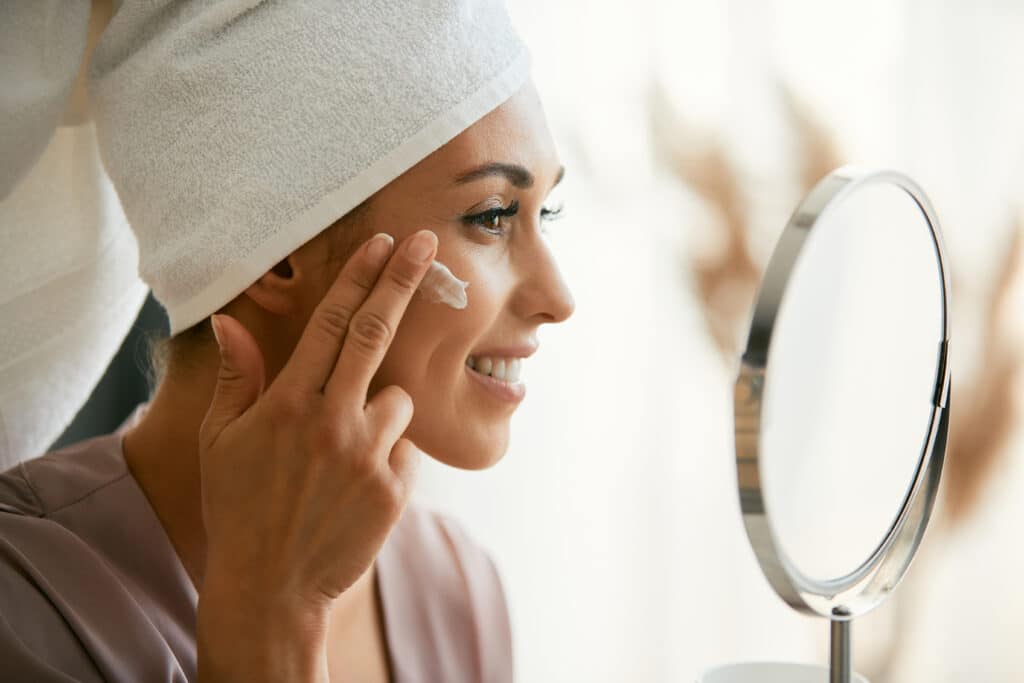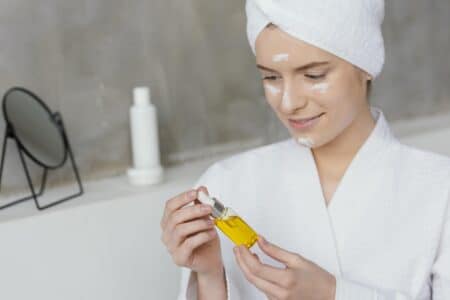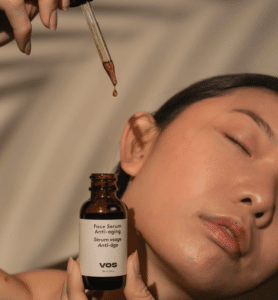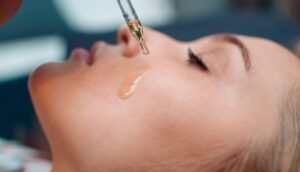Your skin is more than just an outer covering; it’s a vital organ that defends your body against external threats. The outermost layer, known as the skin barrier or stratum corneum, serves as the first line of defense. It retains moisture, regulates hydration, and shields against pollutants, irritants, and pathogens.
A healthy skin barrier is slightly acidic and consists of lipids (fats), ceramides, cholesterol, and skin cells arranged like bricks and mortar. When intact, it functions efficiently. When compromised, it leads to dryness, irritation, and increased sensitivity. Common culprits for a weakened skin barrier include harsh skincare products, over-exfoliation, environmental damage, and unprotected sun exposure.
Why the Skin Barrier Needs Protection from the Sun
While many people apply sunscreen for cosmetic reasons, such as preventing sunburn or premature aging, its role in skin barrier health is often overlooked.
Ultraviolet (UV) radiation, particularly UVA and UVB rays, is a major external factor that weakens the skin barrier. Prolonged exposure disrupts the lipid structure, reduces natural moisture retention, and leads to oxidative stress, inflammation, and cellular damage. UV exposure can also trigger inflammatory skin conditions like eczema, rosacea, and acne flare-ups.
Without adequate sun protection, the cumulative damage undermines the skin’s ability to repair and maintain itself. This makes sunscreen not just a cosmetic necessity but a fundamental component in preserving the structural integrity of your skin barrier.

How Sunscreen Supports Skin Barrier Health
- Prevents UV-Induced Lipid Damage
Lipids in the skin barrier are sensitive to UV rays. When these lipids break down due to sun exposure, your skin loses its ability to lock in moisture and keep irritants out. Broad-spectrum sunscreens help reduce this degradation, maintaining the lipid layer and preserving the barrier’s natural resilience.
- Reduces Inflammation and Oxidative Stress
UV radiation triggers the formation of free radicals—unstable molecules that damage cells and proteins. Sunscreen limits this process, reducing oxidative stress that contributes to skin barrier disruption and premature aging.
- Minimizes Transepidermal Water Loss (TEWL)
Compromised skin loses moisture through a process called transepidermal water loss. By shielding the skin from UV rays, sunscreen helps retain essential hydration, reinforcing the protective function of the barrier.
- Supports Skin Conditions Linked to Barrier Dysfunction
Conditions like atopic dermatitis, psoriasis, and acne often stem from a compromised skin barrier. Sunscreen can act as a preventative measure, reducing flare-ups by protecting against environmental triggers, especially UV radiation.
Sunscreen and Skin Barrier Health: The Perfect Pair in Daily Skincare
Integrating sunscreen into your daily routine isn’t just about avoiding sunburn—it’s about proactive skin health. For those using active ingredients like retinoids, AHAs, or BHAs, which can increase photosensitivity, sun protection becomes even more critical.
Whether you’re treating pigmentation, dryness, or sensitivity, consistent sunscreen use supports the skin barrier during recovery and helps maintain long-term results.
Choosing the Right Sunscreen for Barrier Health
Look for Broad-Spectrum Protection
A sunscreen labeled “broad-spectrum” protects against both UVA (aging) and UVB (burning) rays. This full-spectrum protection is crucial in reducing barrier damage caused by sunlight.
Opt for Mineral-Based (Physical) Sunscreens for Sensitive Skin
Zinc oxide and titanium dioxide are key ingredients in mineral sunscreens. They sit on the surface of the skin and reflect UV rays, making them less likely to cause irritation. These are ideal for compromised or sensitive skin types.
Avoid Harsh Additives
Some chemical sunscreens may contain fragrances, alcohols, or preservatives that irritate compromised skin. Choose fragrance-free, non-comedogenic, and hypoallergenic formulas to prevent further disruption.
Consider Added Skin Barrier Ingredients
Some modern sunscreens include ingredients like ceramides, niacinamide, or panthenol, which directly support the skin’s natural barrier function while offering UV protection. These ingredients work synergistically with sunscreen to repair and reinforce the skin.
How to Apply Sunscreen for Maximum Barrier Benefits
- Use Enough: Adults should apply at least a teaspoon of sunscreen to the face and one ounce (about a shot glass) to the body.
- Apply 15 Minutes Before Sun Exposure: This allows the sunscreen to properly adhere and form a protective layer.
- Reapply Every 2 Hours: More frequently if swimming or sweating.
- Apply Even on Cloudy Days: Up to 80% of UV rays penetrate clouds.
- Pair with Barrier-Supportive Products: Moisturizers and serums with barrier-repair ingredients can enhance protection and recovery.
Complementing Sunscreen with a Barrier-Friendly Routine
Gentle Cleansing
Choose mild, pH-balanced cleansers that don’t strip natural oils. Over-cleansing can disrupt the skin barrier, making it more vulnerable to UV damage.
Hydration
Use moisturizers with humectants (like glycerin or hyaluronic acid) and emollients (like squalane or shea butter) to maintain moisture balance and support barrier recovery.
Minimalist Approach
Avoid layering too many active ingredients—this can irritate the skin. Let sunscreen do its job without overcomplicating your skincare regimen.
The Role of Sunscreen in Skin Aging and Barrier Maintenance
One of the most significant contributors to visible skin aging is sun damage. This includes wrinkles, sagging, loss of elasticity, and discoloration. What’s often overlooked is that these signs of aging are closely linked to chronic barrier damage.
Collagen breakdown, elastin deterioration, and uneven pigmentation all trace back to prolonged UV exposure. By consistently wearing sunscreen, you’re not just preventing cosmetic damage; you’re preserving the skin’s natural barrier and structural proteins.
Aging, Skin Barrier, and Daily Sun Protection
As we age, the skin’s ability to repair itself declines. This means the skin barrier becomes thinner, drier, and more prone to damage. Sunscreen becomes increasingly important for older adults, not just for preventing skin cancer but for maintaining barrier integrity and minimizing sensitivity.
Pairing sunscreen with barrier-repair ingredients like ceramides, cholesterol, and fatty acids can make a noticeable difference in skin resilience and hydration over time.
Conclusion:
The relationship between sunscreen and skin barrier health is foundational for anyone looking to maintain healthy, comfortable skin. While cleansers, moisturizers, and serums play their roles, sunscreen acts as your first and most effective layer of defense.
Daily use of broad-spectrum sunscreen not only shields against visible damage but also preserves the skin’s essential protective barrier. It helps reduce inflammation, maintain moisture, and support recovery from environmental stressors. Regardless of your age, skin type, or lifestyle, sunscreen is a non-negotiable part of your skincare routine.




